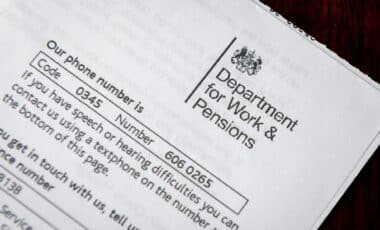The Department for Work and Pensions (DWP) has confirmed revised payment dates for DWP Universal Credit payments and other benefits due during the holiday period. Payments scheduled between December 25 and January 2 will be processed earlier to provide financial support to recipients during Christmas and New Year.
Adjusted Payment Dates for DWP Universal Credit Payments and Other Benefits
To accommodate bank holidays and ensure timely support, the DWP has moved payment dates forward. For example:
- Payments due on Christmas Day (December 25) will now be made on December 24.
- Payments scheduled for New Year’s Day (January 1) will be issued on December 31.
The adjusted schedule for Universal Credit and other benefits includes:
| Scheduled Pay Date | Universal Credit Payment Date | Other Benefits Payment Date |
|---|---|---|
| Tuesday, December 24 | Tuesday, December 24 | Tuesday, December 24 |
| Wednesday, December 25 | Tuesday, December 24 | Tuesday, December 24 |
| Thursday, December 26 | Tuesday, December 24 | Tuesday, December 24 |
| Friday, December 27 | Friday, December 27 | Tuesday, December 24 |
| Wednesday, January 1 | Tuesday, December 31 | Tuesday, December 31 |
| Thursday, January 2 | Thursday, January 2 | Tuesday, December 31 |
These changes align with similar adjustments for other government benefits, including State Pension, Personal Independence Payment (PIP), Carer’s Allowance, Tax Credits, and Child Benefit.
Supporting Families During the Holidays
The adjustments aim to provide financial relief during a time that can strain household budgets. Sir Stephen Timms MP, Minister for Social Security and Disability, emphasized the importance of these measures, stating :
“The Christmas period can be overshadowed by financial worry for families on the lowest incomes. These changes, alongside our Household Support Fund, are designed to offer both immediate relief and long-term financial security.”
Main Figures and Initiatives :
- The Household Support Fund, extended with an additional £421 million in September, will remain active until March 2025. An extra £1 billion has been allocated to sustain the fund through March 2026.
- In the Autumn Budget, Chancellor Rachel Reeves introduced a Fair Repayment Rate for benefit deductions. This measure will lower the maximum deduction rate from 25% to 15% for overpayment recoveries, potentially saving affected households up to £420 annually.
- Approximately 700,000 low-income households with children on Universal Credit are expected to benefit directly from this adjustment.
Government’s Commitment to Financial Stability
The government’s measures reflect its broader strategy to address poverty and improve social security. A spokesperson noted:
“We are committed to ensuring people receive the support they need swiftly, while continuing work to fix the social security system and reduce poverty. These changes are central to the Prime Minister’s Plan for Change.”
The Plan for Change also emphasizes creating economic stability and growth, with policies aimed at putting “more money in people’s pockets” while addressing immediate needs.
Additional Help Available
In addition to early payments, families struggling with the cost of living can seek support through their local councils, which administer the Household Support Fund. This fund can cover essentials such as food, utilities, and other urgent needs.









